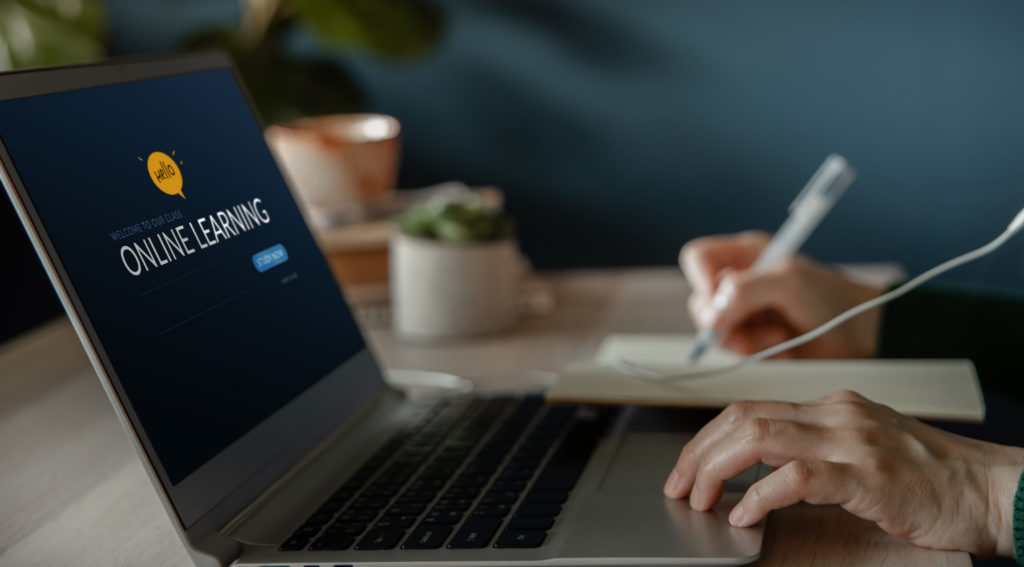Share
In this interview, María Soler, EMEA Global Learning & Development Lead at Roche, discusses how the Swiss company has made continuous learning a strategic pillar in driving innovation within the pharmaceutical industry.
How does one of the world’s most influential pharmaceutical companies lead the way in innovation? Roche has built its legacy on a clear principle: “Do now what patients need next.” This philosophy goes beyond scientific advancement—it also defines the company’s corporate culture. In a highly regulated sector where innovation is an ongoing necessity, the Swiss pharmaceutical giant has made continuous learning a strategic pillar, ensuring its leadership in the market.
Roche’s belief that companies must go beyond financial results and contribute to societal well-being is reflected in their Learning & Development (L&D) strategy. At Roche, training is more than a priority—it is an asset that enables agility in an ever-evolving industry. María Soler, EMEA Global Learning & Development Lead and Head of L&D in Spain and Portugal, plays a key role in fostering a learning culture that develops talent, drives innovation, and enhances employee well-being.
This mindset allows Roche to continuously evolve and adapt to change with agility. In this interview, Soler explores how learning has become a strategic pillar in tackling industry challenges and making a real impact on people’s lives.
Learning as a Strategic Pillar at Roche Farma
Training is at the heart of Roche’s business strategy. According to Soler, the company is focused on building a “high-performance organisation”, a model that encourages teams to constantly push boundaries, innovate, and strive for excellence.
One of Roche’s key objectives is to be recognised as “THE Place to Work”—a company where employees feel valued, supported, and motivated. To achieve this, Roche promotes a learning culture centred on professional excellence, reinforcing employee well-being and engagement. “What we already know is not enough for the challenges of tomorrow. We must learn today what our patients will need in the future,” says Soler. This forward-thinking approach enables Roche to continuously evolve and remain at the forefront of the pharmaceutical sector.
Leadership as a Catalyst for Growth
While technical skills are essential in the pharmaceutical industry, leadership is equally critical in building high-performing teams. Soler highlights Roche’s core belief: “Everyone deserves a great leader.” The company understands that strong leadership not only enhances individual performance but also creates an inclusive environment where every professional can reach their full potential.
To support this, Roche has developed a comprehensive leadership training programme, open to all levels and tailored to the individual and collective needs of its teams. Today, the company runs more than 15 leadership programmes, ranging from foundational training to senior leadership development. This investment in leadership training allows Roche to scale leadership capabilities and reinforce its high-performance culture, fully aligned with its organisational values.
“Great leaders elevate the performance of those around them, fostering a culture of trust and motivation,” explains Soler.

Technology and the Personalisation of Learning
One of the most significant advancements in L&D is the integration of technology to deliver more personalised and effective learning experiences. At Roche, digitalisation has played a key role in adapting training programmes to the specific needs of each team and region.
By leveraging artificial intelligence, Roche has developed adaptive learning solutions that tailor content to the knowledge levels and learning pace of each employee.
Soler highlights that immersive learning and simulations have proven to be particularly effective in such a highly technical industry. “Through these technologies, our professionals can engage in realistic scenarios, refining their decision-making in a safe environment”. This methodology has significantly improved knowledge retention, ensuring immediate application of newly acquired skills.
Measuring Impact: A Key Factor in Decision-Making
In an era where companies must justify investment in training, Roche has implemented a robust evaluation model to measure the real impact of its L&D programmes. According to Soler, Roche uses a combination of quantitative and qualitative indicators to assess the return on investment (ROI) in training.
By leveraging these insights, Roche has been able to optimise its training programmes, ensuring they drive measurable business outcomes. “An effective training programme is one that has a direct impact on the organisation and the people within it,” says Soler.
A Learning Model That Makes a Difference
Roche has established itself as a leader in corporate learning innovation. Soler highlights that Roche’s commitment to continuous learning has enabled the company to launch initiatives with tangible impact on operational efficiency, employee motivation, and customer experience.
“A recent example is our implementation of microlearning-based programmes, which have significantly improved knowledge retention and the practical application of new skills,” she explains.
For Soler, the key to success in corporate training lies in embedding learning into the organisational culture. “Companies that prioritise talent development and invest in personalised learning strategies will be better equipped to face future challenges,” she concludes.
With a strategic vision and an innovative approach, Roche Farma continues to lead the transformation of learning in the pharmaceutical sector—demonstrating that investing in training is a solid foundation for sustainable growth and long-term business success.
You might also be interested in:
Share

